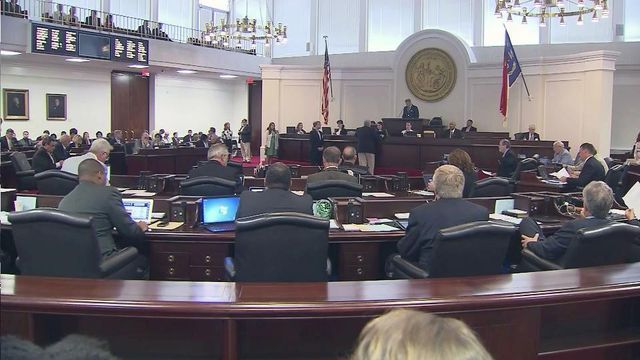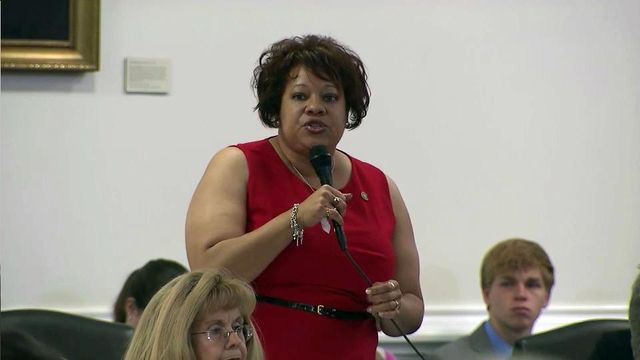Senate gives initial OK to longer abortion waiting periods
Doctors who provide abortions would face additional administrative burdens, and women would have to wait longer for the procedure under a bill the state Senate gave tentative approval to on Thursday.
Posted — UpdatedDebate on the measure, which is subject to a second Senate vote next week before returning to the state House for consideration, inflamed one of the major fault lines between Democrats and Republicans during a sometimes tense, hour-long debate.
"This bill is another attempt by the legislature to play doctor," said Sen. Terry Van Duyn, D-Buncombe. "I would assert this is not a business we need to get into."
The bill increases the time between the point a woman inquires about an abortion and the time the procedure may happen from 24 hours to 72 hours, a move several Democrats derided as "paternalistic" and "insulting" to women who had already thought about what they're doing.
But Sen. Joyce Krawiec, R-Forsyth, who led the battle on the Senate floor for the bill, said that the waiting period may change the minds of young women who don't know all of their options.
"I have counseled many post-aborted women, and one of the most common things that I hear is, 'I didn’t have time to make a decision. I was rushed,'" Krawiec said.
The bill also would allow only board-certified ob/gyns to perform abortions. Van Duyn noted that 38 of North Carolina's 100 counties don't have a physician who meets that standard.
"The purpose of this (legislation) is to make abortion less available. That makes it less safe. That endangers women's health, and it is totally medically unnecessary," she said.
Sen. Josh Stein, D-Wake, sought to separate the other language in the bill from the abortion measures, saying that Democrats should not have to choose between backing politically popular, common sense measures or sticking to long-held principles with regard to abortion.
"These are distinct issues," Stein said. "We should not be playing politics with women’s health."
However, led by Senate Rules Committee Chairman Tom Apodaca, R-Henderson, the Republican-dominated chamber rebuffed Stein's move to divide the bill into two questions as well as a number of amendments offered by other Democrats.
Two amendments offered by Democrats, including one that would prohibit prisons from shackling pregnant women, were postponed until Monday night.
In addition to extending the abortion waiting period, the bill would require that doctors who perform abortions in which the fetus is older than 16 weeks send an image of the ultrasound to DHHS.
Sen. Floyd McKissick, D-Durham, said that was an attempt to second-guess doctors.
"We're trying to bully and intimidate doctors, to make sure doctors don't want to perform these procedures," McKissick said.
Krawiec insisted the new measure would help ensure that North Carolina's law banning abortion beyond 20 weeks was being followed. She pointed to data showing that, for some 10 percent of abortions performed in 2014, the age of the fetus was not determined.
"Many have told me they had abortions after 20 weeks," she said. "That will stop this from happening."
Apodaca and Sen. Bill Rabon, R-Brunswick, joined all Senate Democrats who were present to vote against the bill.
Senators must vote again to approve the bill before sending it back to the House, where members would have to agree to the changes made in the Senate before the bill could be sent to the governor.
Related Topics
• Credits
Copyright 2024 by Capitol Broadcasting Company. All rights reserved. This material may not be published, broadcast, rewritten or redistributed.






